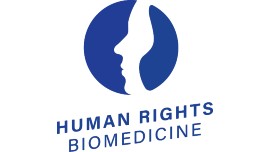Predictivity, Genetic Testing and Insurance: Adoption of a Recommendation
Following the adoption of the Additional Protocol, the DH-BIO then agreed to address the applications of genetics outside the medical field starting in the field of insurance.
It's on 26 October 2016 that the Recommendation CM/Rec(2016)8 on the processing of personal health-related data for insurance purposes, including data resulting from genetic tests was adopted by the Committee of Ministers.
The Council of Europe calls upon the Governments of its Member States to ensure non-discrimination, including on grounds of genetic characteristics, and the protection of private life in the framework of insurance contracts covering risks related to health, age or death. “People’s health and genetic data are highly sensitive and must be properly protected. Governments have duty to ensure nobody is discriminated on the grounds of his or her genetic characteristics. Genetic tests for insurance purposes should therefore be banned,” said Secretary General Jagland. “Our recommendations show the way how to better protect the rights of insured people in an increasingly international market,” he added. The new Recommendation adopted today sets out essential principles aimed at protecting the rights of persons whose personal data are processed for insurance purposes. It takes into account insurance companies’ legitimate interest in assessing the level of risk presented by the insured person. The recommended measures include strict safeguards for the collection and processing of health-related personal data, based on the insured person’s consent, as well as the prohibition of requiring genetic tests for insurance purposes. As a first international legal instrument in this field, the Recommendation notably aims at preventing any processing of health-related data which would not be justified and would not comply with the criteria of relevance and validity. The text also underlines the necessity of facilitating access to insurance, under affordable conditions, to persons presenting an increased health risk, and the importance of promoting fair and objective settlement of disputes between insured persons and insurers.











